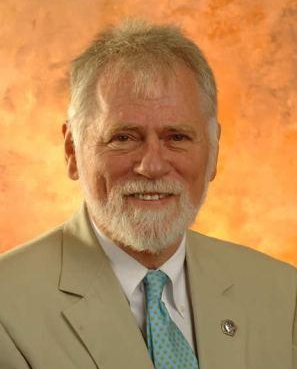
Documentary film, MRGO-ING, GOING, GONE, a decade in the making, reveals the backstory of the Mississippi River Gulf Outlet—the infamous and now closed 76-mile shipping channel implicated in the catastrophic flooding following Hurricane Katrina. Produced by the Loyola University New Orleans Center for Environmental Communication and e/Prime Media, it’s a story of wetlands destruction, coastal erosion, flooding, political wrangling and mismanaged public resources. A free, public screening of the documentary is set for Wednesday, Oct. 23 at 7 p.m. at the Chalmette Cinema located at 8700 W. Judge Perez Dr.
Filmmakers Bob Thomas, Ph.D., director of the Loyola Center for Environmental Communication, and Kevin McCaffrey, executive producer of e/Prime Media, interviewed more than 30 experts, including many who witnessed some of the most distressing environmental consequences of the shipping channel in St. Bernard Parish. The film also features The Lens reporter and Pulitzer Prize-winning environmental journalist Bob Marshall. The documentary will premiere on New Orleans public television station WYES, showing Oct. 20 at 7 p.m., Oct. 24 at 9 p.m. and Oct. 26 at 11 p.m.
The team produced the documentary from more than 120 hours of footage shot from 2003 to 2013. Because of this, the documentary offers an exclusive look at the flaws of the Mississippi River Gulf Outlet before and after Hurricane Katrina in 2005.
Though the Mississippi River Gulf Outlet was closed in 2009, the nation could potentially spend billions of dollars repairing the damage caused by it, according to experts interviewed in the documentary. But for Thomas, who originally began the documentary project with the help of former Loyola students Ryan Pastorek ’02, M.B.A./J.D. ’07 and Caroline Taylor ’11, closing the shipping canal is not enough. He wants to ensure such catastrophic communication breakdown between the public and government never happens again.
“The main lesson is very simple—communities have got to think critically when they make plans, because otherwise they can develop something that can almost function like a suicidal instrument,” Thomas said. “When they talked about building this thing, it was going to be the pathway to economic Mecca.”
But experts in the documentary said instead of an economic boon, the canal was dead in the water. The Mississippi River Gulf Outlet functioned as a “linchpin to the demise of our coast,” Carlton Dufrechou, former director of the Lake Pontchartrain Basin Foundation, said in the documentary. It destroyed nearby marshland, which acts as a natural buffer protecting places like New Orleans’ Lower Ninth Ward and St. Bernard Parish from hurricane storm surge, according to the documentary.
“We want the audience to walk away questioning themselves about the environmental issues and about the coast,” McCaffrey said. “One of the biggest things about environmental discussion is the astounding lack of communication (and instead) miscommunication and misrepresentation when this is so important to people’s lives.”
